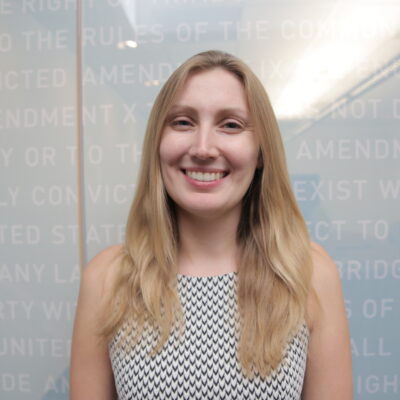Imagine you just moved to Los Angeles. You can’t find a job and are temporarily homeless. And just when you think things can’t get worse, you’re arrested for blocking a sidewalk when you set up a tent to sleep. You appear at your court date and because you can’t afford a lawyer, the judge tells you to speak with a public defender.
But that’s not free. The public defender immediately hands you a form that says that you must send a check for $50 to a private collections agency to “register” for an attorney. The fee is due in five days, and the form doesn’t say anything about what to do if you can’t pay it.
For many years, low-income defendants in Los Angeles who needed a public defender have faced this dilemma. But today, all of that changed when the Los Angeles County Board of Supervisors voted to end the collection of upfront “registration fees.”
The ACLU of Southern California, which recommended the elimination of the fee in Los Angeles County, has released a report on the little known fee requirement that exists in many courts. The report calls for the elimination of registration fees statewide.
Forty-three states charge fees for using a public defender, and 27 of these charge upfront “registration fees” like the one that was just repealed in Los Angeles. These upfront fees can range from $10 all the way up to $480 in some states, and defendants can be charged thousands of dollars after a case is over.
The Supreme Court has made it clear that the Sixth Amendment requires the government to provide a lawyer for everyone who is too poor to hire one. Charging a “registration fee” to indigent defendants violates this right.
It also undermines effective representation. In investigating this issue, the ACLU spoke to many public defenders who are deeply troubled by this practice. When a client walks in the door, public defenders almost immediately have to hand the person a form saying that they owe a fee and could be sent to collections if they don’t pay it. This isn’t exactly a recipe for building trust between an attorney and a client.
Even worse, some people may opt to represent themselves when they hear about the fee.
It’s time for other counties in California to follow Los Angeles’s lead. Public defender fees are still authorized in many large counties in California, including San Diego, San Bernardino and Riverside, and these counties should take swift action to end public defender fees.
Across California, there are several fees that shift the costs of our criminal justice system onto members of our communities who can least afford to pay them. When a person is convicted of a crime, a multitude of fees are added, often dwarfing the original fine that is the intended as a punishment. These include things such as a “state penalty assessment” to fund state projects, a “court facilities fee” to fund new courthouse building projects, and a fee for the “DNA identification fund,” even if no DNA was collected in the case. These fees add up to a mountain of court debt that can prevent people from getting a job or housing after a criminal conviction.
Eliminating unjust court fees can protect access to justice for low-income residents throughout California.

